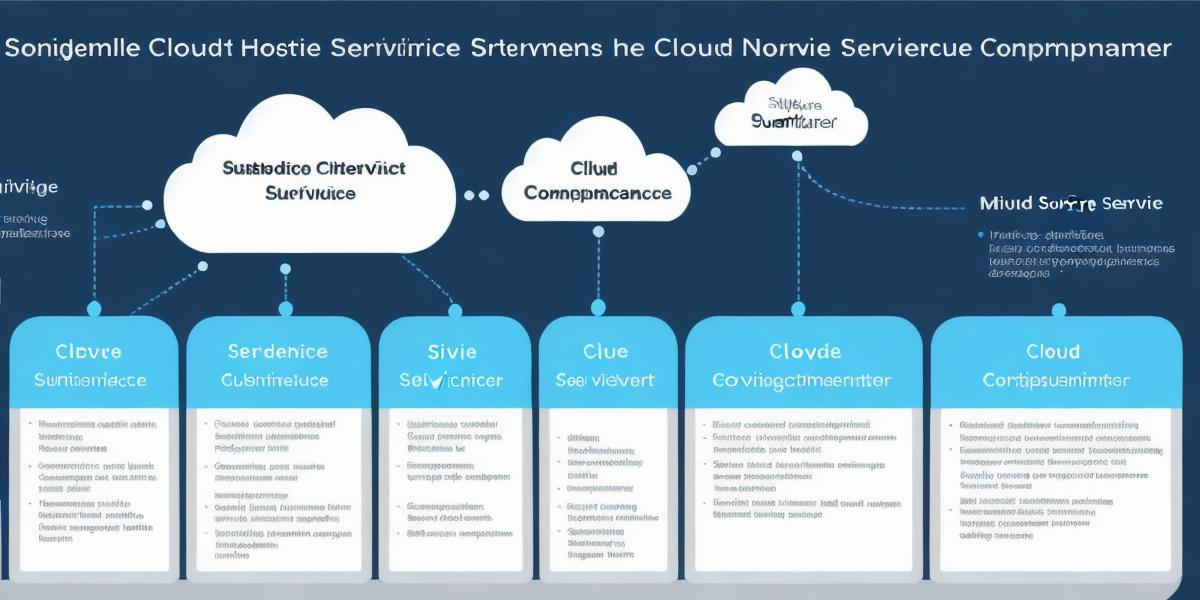Cloud Hosting Services Subcontracted? Understanding Service Structures

As a programmer, you’re probably aware of cloud hosting services and their benefits. But have you ever wondered if these services are subcontracted? In this article, we’ll take a closer look at the various service structures used by cloud hosting providers and explore the implications of each.
Firstly, let’s define what we mean by "subcontracted". Subcontracting is the practice of outsourcing work to another company or individual. In the context of cloud hosting, this means that a hosting provider might outsource certain aspects of their services to third-party providers. This could include things like network infrastructure, storage, or software development.
Now, let’s take a look at some common service structures used by cloud hosting providers:
- Public Cloud: A public cloud is a multi-tenant environment where multiple customers share the same infrastructure and resources. This means that the underlying hardware and software are owned and maintained by the hosting provider. In this model, subcontracting is often used to offload certain tasks, such as network management or security monitoring, to third-party providers.
- Private Cloud: A private cloud is a single-tenant environment where only one customer uses the infrastructure and resources. This means that the underlying hardware and software are owned and maintained by the hosting provider or the customer. In this model, subcontracting is less common as the provider has more control over the environment.
- Hybrid Cloud: A hybrid cloud combines elements of both public and private clouds. This allows customers to take advantage of the scalability and cost-effectiveness of a public cloud while maintaining their own security and compliance requirements in a private cloud. In this model, subcontracting can still be used to offload certain tasks, but it’s more common for providers to use a combination of in-house and third-party resources.
So, to answer the question at hand: yes, cloud hosting services can be subcontracted. However, the extent to which this is done will depend on the service structure being used. Public clouds are more likely to use subcontracting, while private and hybrid clouds may have less need for it.
It’s important to note that subcontracting isn’t necessarily a bad thing. In fact, it can lead to better services and more efficient resource allocation. However, programmers should be aware of the potential risks associated with subcontracting, such as security vulnerabilities or compliance issues.
In conclusion, cloud hosting services can be subcontracted, but the extent to which this is done will depend on the service structure being used. Programmers should be aware of the potential risks and benefits of subcontracting and carefully evaluate their options before choosing a cloud hosting provider.








